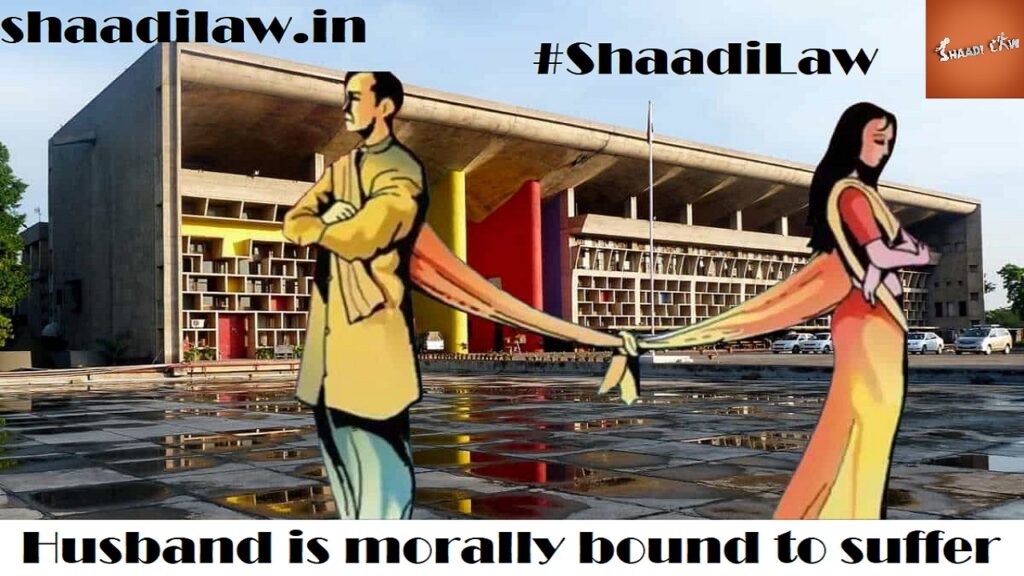KARNATAKA HIGH COURT
(Kalaburagi Bench)(DB)
Before:- K.S.Mudagal and J.M.Khazi, JJ.
Miscellaneous First Appeal No.201613 of 2016 (FC). D/d. 25.8.2021.
Ashik Kataria – Appellant
Versus
Smt. Sushila @ Shushma – Respondent
For the Appellants:- Smt. Chandrakala, Advocate for Sri Shivakumar Kalloor, Advocate.
For the Respondent:- Sri Prakash R. Kulkarni, Advocate – Absent.
JUDGMENT
K.S.Mudagal, J. – None appears for the respondent. Heard the appellant’s counsel.
Aggrieved by the judgment and decree dated 20.07.2016 in M.C.No.31/2014 allowing respondent’s petition against him for divorce, the husband has preferred the above appeal.
2. The marriage of the appellant and the respondent was solemnized on 02.02.2006 at Raichur. Out of the said wedlock a daughter by name Ritika was born on 13.07.2008. The respondent filed M.C.No.31/2014 against the appellant seeking decree for divorce on the ground that, after few days of the marriage appellant started inflicting physical and mental cruelty on her and drove her out of the matrimonial home in April 2012. She further alleged that though after the intervention of the elders she joined the matrimonial home, the appellant continued his ill-treatment.
3. Respondent alleged that the appellant twice tried to commit suicide and she had to rescue him and he was infected with deadly disease of HIV. She further alleged that appellant and his parents snatched her jewelries from her locker. She also claimed permanent alimony of ^1,00,00,000 (Rupees One Crore).
4. The appellant contested the petition denying the allegations of cruelty. He admitted that he was infected with HIV, but contended that he suffered that infection due to medical negligence during his treatment for dengue fever in the hospital.
5. The respondent was examined as PW-1 before the trial court. The appellant cross-examined her only in part. He did not lead any evidence.
6. The trial court, on hearing the parties, by the impugned judgment and decree, allowed the petition and granted decree of divorce on the ground that though the appellant suffering HIV disease may not amount to cruelty, but the case of the respondent is covered under section 13(1) (v) of the Hindu Marriage Act, 1955 (for short ‘the Act’). The Trial Court further held that since HIV is a venereal disease of communicable form, the respondent is entitled to decree of divorce. The trial court negatived the claim of the respondent for permanent alimony considering the financial conditions of both the parties.
7. The appellant assails the impugned judgment and decree on the ground that the trial court has failed to appreciate the evidence and the position of law in proper perspective. So far as the allegations of cruelty, PW-1 reiterated the grounds of the petition. She spoke to the appellant ill-treating her and taking away her jewelries.
8. As already point out, the appellant did not cross-examine PW-1 on all material aspects. The cross-examination of PW-1 was concentrated on the financial transaction between the father of respondent and appellant and the appellant contacting HIV infection due to the medical negligence. The attempt of the appellant to commit suicide and he inflicting physical and cruelty to her were not controverted. Therefore, the Trial Court held that during the course of cross-examination of PW-1 the appellant has not denied the allegations of ill-treatment to the respondent by him and his family members.
9. So far as the ground of the appellant’s HIV infection, the trial court rightly held that the said fact itself does not amount to cruelty. The trial court referred to Section 13 (1) (v) of the Act which reads as follows:
“13. Divorce – (1) Any marriage solemnised, whether before or after the commencement of this Act, may, on a petition presented by either the husband or the wife, be dissolved by a decree of divorce on the ground that the other party –
(i)…
(ia)…
(ib)…
(ii)…
(iii)…
(iv)…
(v) has been suffering from venereal disease in a communicable form;
10. A perusal of Section 13 (1) (v) of the Act shows that it does not qualify the said ground for divorce on the other spouse suffering such venereal disease due to the mistake of others. The sufferance of such disease itself is a ground for seeking divorce. Since the appellant admitted that he is suffering from HIV which is a venereal disease in a communicable form, the Trial Court was justified in granting a decree for dissolution of the marriage.
11. This Court does not find any ground to interfere with the impugned judgment and order. Therefore, the appeal is dismissed.




